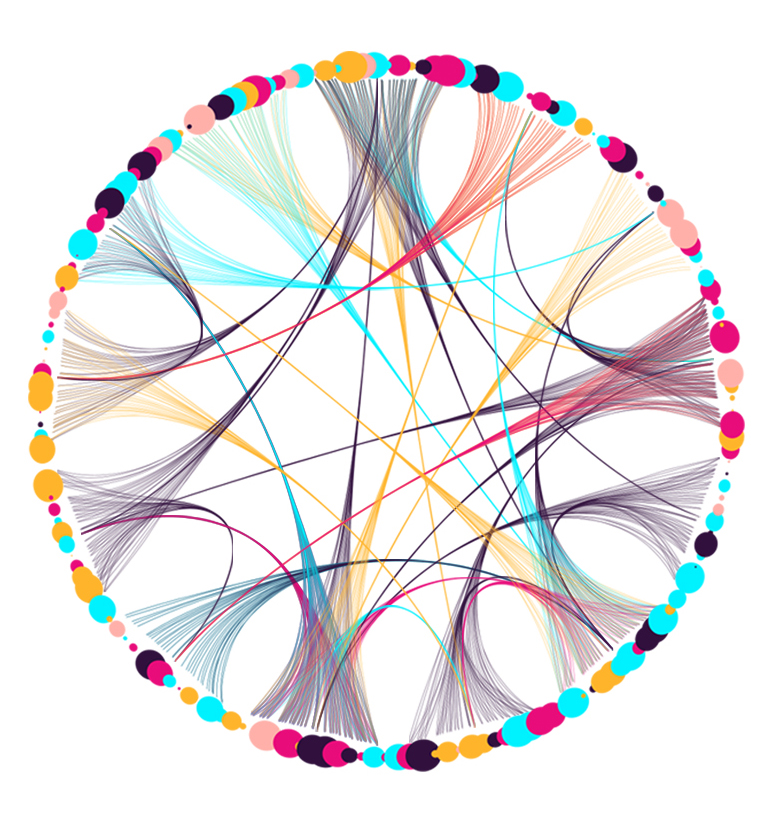Research Services
Our Bioinformatics capabilities
MedGenome offers end-to-end services for next generation genomics data analysis using proprietary interpretation tools and automated pipelines. Due attention is devoted to each step of the data analysis process.
Our analysis components include quality assessment of raw data, comprehensive data analysis, interpretation of results for biological insights, and presentation of results to the customers in meaningful, easily readable report format.
Further, we optimize all parameters to ensure speedy on-time delivery of finished projects, without sacrificing data quality. Our custom data analysis offering is designed to accommodate your specific requirements and is especially designed to employ publicly accessible datasets along with your own data, as a part of the experimental analysis. For example, we specialize in building custom novel pipelines for our clients whose analysis needs are not addressed with pre-existing pipelines. As a typical case, we have built and offered services for clients to identify foreign DNA insertion sites in eukaryotic genomes. Depending on the type of analysis, our pipelines are capable of delivering robust reliable results, even with partial genome assemblies.
Additionally, as value addition, we offer premium Amazon cloud (AWS) based data analytics services to expedite turnaround time for critical projects. This is particularly useful for projects with a significant scale of samples, such as population genetics projects, where the initial step in analysis engages substantial analytics hardware.
Genome Bioinformatics
GATK standard analysis pipeline (CAP compliant)
Variant (SNP, indel) calling and annotation, structural variation (CNV) calling and annotation, gene prediction and annotation, comparative analysis, family analysis, disease analysis
Prediction AA substitution and risk score, frequency estimation, rare variant analysis, gene cluster annotation
HLA Sequencing
The raw sequence reads are aligned using a FASTA-like algorithm. Instead of aligning the reads to a single reference however, the reads are aligned to all the alleles in the library Analysis of the NGS data involves specialized software algorithms to align hundreds of short oligonucleotide reads to the allele sequences managed by the IMGT/HLA. There is significant variability in the sequence length of alleles in the IMGT/HLA database, as an allele can be named by providing sequence from as little as one exon, while many alleles have full-locus sequences.On Request
Dialogue for custom requirements

Metagenomics
Hybrid proprietary pipeline with in-house database and external tools
Genus and species ID, quantification/diversity assessment, differential analysis, dominant population analysis
Pathway analysis, microbial activity assessment (growth)
Transcriptome Bioinformatics
Softwares/Pipelines DESeq2/TopHat + CuffLinks
DGE, gene abundance quantitation, novel genes and transcripts discovery, gene annotation, gene ontology, gene set enrichment analysis
Splice site usage for isoforms, pathway analysis using DAVID, gene fusion analysis, allele specific expression
Small RNA Sequencing
Small RNA workbench
DGE, quantification, discovery, target prediction, gene ontology, gene set enrichment analysis
Novel micro RNA discovery, pathway analysis for gene targets
Metatranscriptomics
Internal pipeline
Species ID, quantitation, diversity assessment, comparison of diversity across groups, functional analysis of transcripts
Pathway analysis
Epigenome Bioinformatics
BISMARK
DMRs profiling and classification, genes associated with DMRs, TSS mapping, gene set enrichment analysis
Comparison with public databases, employing customer specified public datasets as controls or outgroups, mapping of epigenome markers to known epigenetic modifications, combinatorial analysis of various public datasets for customer specified regions of interest along with customer data

 Enquire
Now
Enquire
Now